How To Prove Traditional Marriage In Nigeria. Daily Law Tips (Tip 573) by Onyekachi Umah, Esq., LLM. ACIArb(UK)
English marriage (also known as; statutory marriage, court marriage, white marriage and marriage under the Act) and traditional or Islamic marriages (also known as; customary marriage, native marriage, village marriage, “Igba Nukwu” in Igbo land, “Igbeyawo” in Yoruba land and “Aure” in Islamic law) are recognized legal marriages in Nigeria. English marriage in Nigeria is monogamous (one man to one woman and clearly excludes same sex marriage). Traditional marriage and Islamic marriage are polygamous (one man to one wife or more wives).
“A man’s family normally consists of the man, his wife or wives and the children born to him by such wife or wives. I have on purpose used the expression wife or wives because we have here in Nigeria two types of marriages recognized by law (a) Marriage under the Marriage Act or Ordinance. This is a monogamous system of marriage and (b) Marriage by Customary Law.” Per OPUTA ,J.S.C ( Pp. 22-23, paras. C-A) Quotation from CHINWEZE & ANOR v. MASI & ANOR (1989) LPELR-851(SC)
“I also agree with the submission of Learned Counsel for the respondent that under Nigerian law, a marriage can be either a marriage under the Marriage Act or customary Islamic law marriage. This is obvious from the tenor of the Marriage Act. In OBIEKWE v. OBIEKWE (1963) 1 NLR 196 Palmer J held that “if the parties had not been validly married under the Ordinance, then either they are married under the custom or they are not married at all.” ? Per EMMANUEL AKOMAYE AGIM ,J.C.A ( P. 80, paras. A-C ) Quotation from OBIOZOR v. NNAMUA (2014) LPELR-23041(CA)
For whatever reason (often in disputes over inheritance), any marriage can be challenged in court and even in native arbitration centers (like in kings’ palaces and village squares). Hence, it is important one keeps proofs of his/her marriage and always be ready to prove same. Where a traditional marriage is challenged, there are few things to be proven.
“The essential ingredients of a valid customary law marriage, such as payment of dowry ceremony, carrying of the bride to the house of the bridegroom etc must have to be proved by calling evidence to establish whether there was a valid marriage under the customary law and in the instant case they were all not established. In Agbeja v. Agbeja (1985) 3 NWLR pt. 11 page 11 the Court held that:- While the evidence of the Head of the family who received the money may be desirable, what is essential is an eye witness account of the transaction. For a marriage under native law and custom to be valid, there must be on the one side the ceremony of giving of the dowry and on the other side the ceremony of the giving of the bride for a marriage under native law and custom. Per ABOKI ,J.C.A ( Pp. 49-50, paras. E-F ) Quotation from MOTOH v. MOTOH (2010) LPELR-8643(CA)
“Secondly the existence of Customary Law Marriage, unless admitted, must be prove by evidence. Where it is disputed that there was any marriage at all, the existence of a Customary Law Marriage must be proved by evidence. The evidence must be on facts contained in the pleadings. So if the existence of such a marriage is not pleaded, evidence cannot validly be led to prove it. Any evidence led to prove the existence of a Customary Law marriage that is not pleaded go to no issue.” Per EMMANUEL AKOMAYE AGIM ,J.C.A ( P. 79, paras. D-F ). Quotation from OBIOZOR v. NNAMUA (2014) LPELR-23041(CA)
“Every Benin customary marriage must be followed by cohabitation. There can be no Benin customary marriage without the parties living together. The living together must commence from the inception of the marriage. After the parties shall have lived together, the wife may obtain leave to visit her parents for a short period.”
Per ATANDA FATAI-WILLIAMS ,J.S.C ( P. 9, paras. A-C) Quotation from OSAMWONYI V. OSAMWONYI (1972) LPELR-2789(SC)
References:
1. Supreme Court’s judgment (on types of marriages in Nigeria) in the case of CHINWEZE & ANOR v. MASI & ANOR (1989) LPELR-851(SC).
2. Supreme Court’s judgment (on how to prove Benin customary marriage) in the case of OSAMWONYI V. OSAMWONYI (1972) LPELR-2789(SC).
3. Court of Appeal’s judgement (on how to prove customary marriage in Nigeria) in the case of MOTOH v. MOTOH (2010) LPELR-8643(CA).
4. Court of Appeal’s judgment (on types of marriages in Nigeria and how to prove customary law marriage) in the case of OBIOZOR v. NNAMUA (2014) LPELR-23041(CA).
#SabiLaw
#DailyLawTips
#SabiBusinessLaw
#SabiElectionLaws
#SabiHumanRights
#SabiLawLectureSeries
#CriminalJusticeMonday
#SabiLawVideoChallenge
Feel free to reach the author, ask questions or make inquiries on this topic or any other legal issues via onyekachi.umah@gmail.com or +2348037665878.
****************************************************************************************
This work is published under the free legal awareness project of Sabi Law Foundation (www.SabiLaw.org) funded by the law firm of Bezaleel Chambers International (www.BezaleelChambers.com). The writer was not paid or charged any publishing fee. You too can support the legal awareness projects and programs of Sabi Law Foundation by donating to us. Donate here and get our unique appreciation certificate or memento.
DISCLAIMER:
This publication is not a piece of legal advice. The opinion expressed in this publication is that of the author(s) and not necessarily the opinion of our organisation, staff and partners.
PROJECTS:
🛒 Take short courses, get samples/precedents and learn your rights at www.SabiLaw.org
🎯 Publish your legal articles for FREE by sending to: eve@sabilaw.org
🎁 Receive our free Daily Law Tips & other publications via our website and social media accounts or join our free whatsapp group: Daily Law Tips Group 6
KEEP IN TOUCH:
Get updates on all the free legal awareness projects of Sabi Law (#SabiLaw) and its partners, via:
YouTube: SabiLaw
Twitter: @Sabi_Law
Facebook page: SabiLaw
Instagram: @SabiLaw.org_
WhatsApp Group: Free Daily Law Tips Group 6
Telegram Group: Free Daily Law Tips Group
Facebook group: SabiLaw
Email: lisa@sabilaw.org
Website: www.SabiLaw.org
ABOUT US & OUR PARTNERS:
This publication is the initiative of the Sabi Law Foundation (www.SabiLaw.org) funded by the law firm of Bezaleel Chambers International (www.BezaleelChambers.com). Sabi Law Foundation is a Not-For-Profit and Non-Governmental Legal Awareness Organization based in Nigeria. It is the first of its kind and has been promoting free legal awareness since 2010.
DONATION & SPONSORSHIP:
As a registered not-for-profit and non-governmental organisation, Sabi Law Foundation relies on donations and sponsorships to promote free legal awareness across Nigeria and the world. With a vast followership across the globe, your donations will assist us to increase legal awareness, improve access to justice, reduce common legal disputes and crimes in Nigeria. Make your donations to us here or contact us for sponsorship and partnership, via: lisa@SabiLaw.org or +234 903 913 1200.
**********************************************************************************












































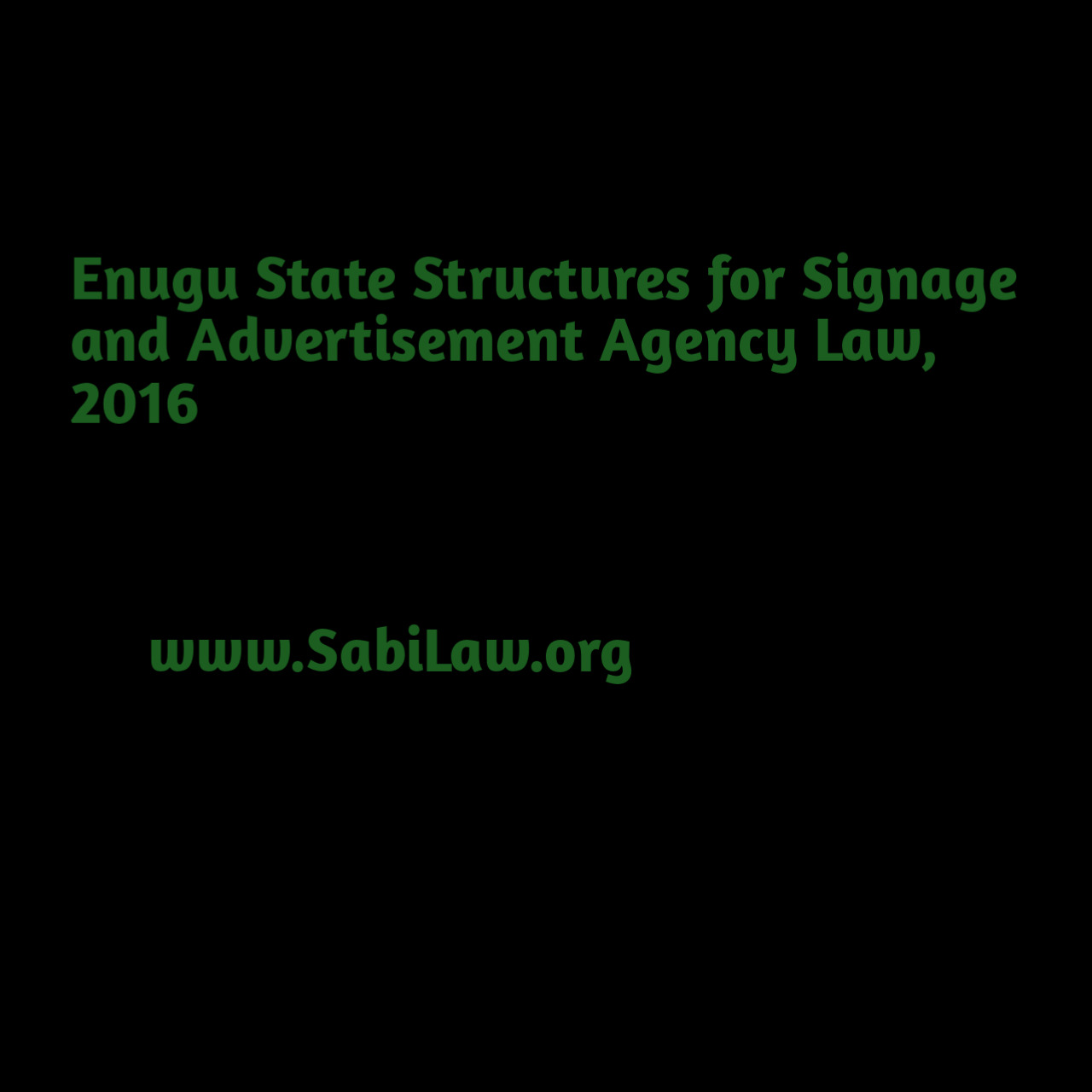

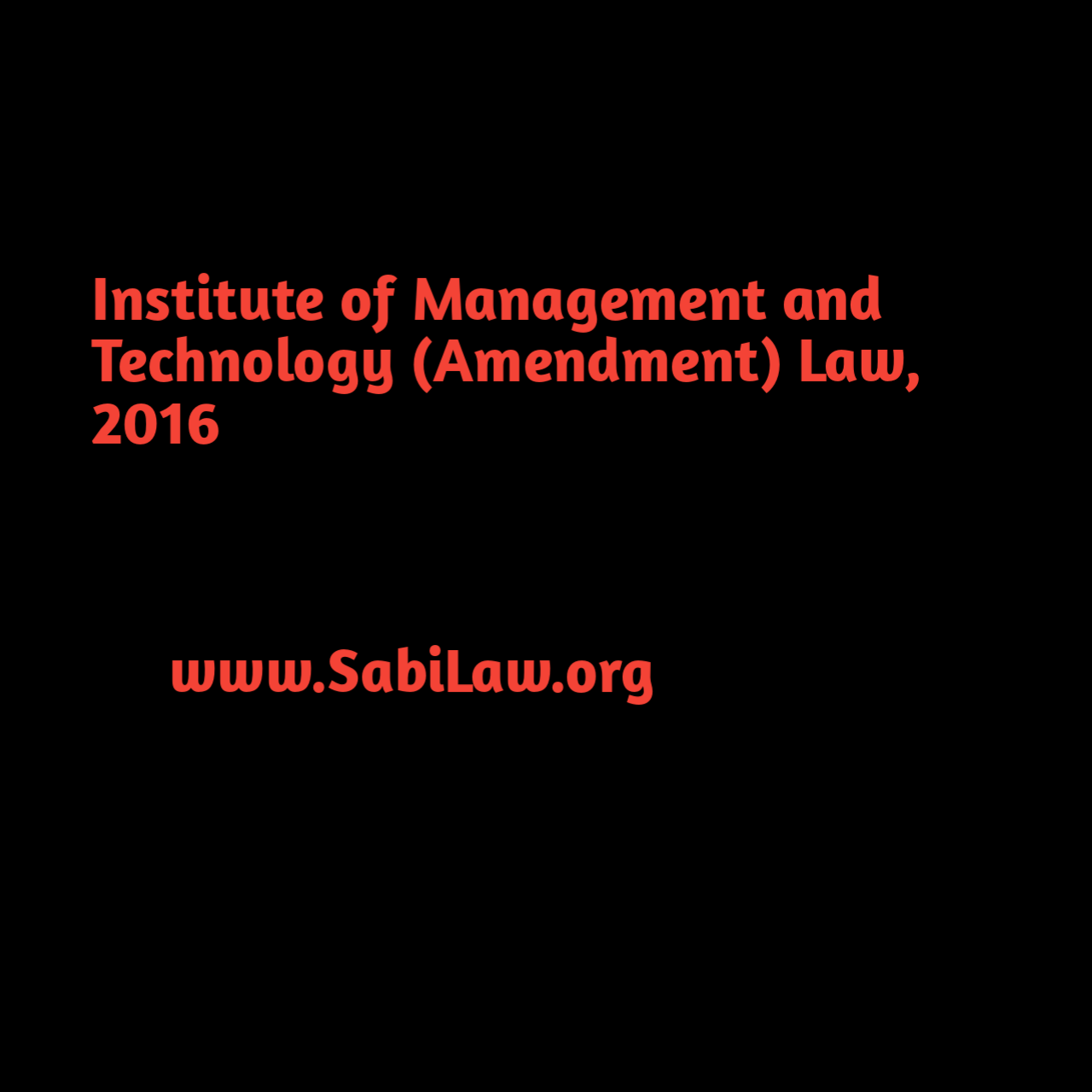
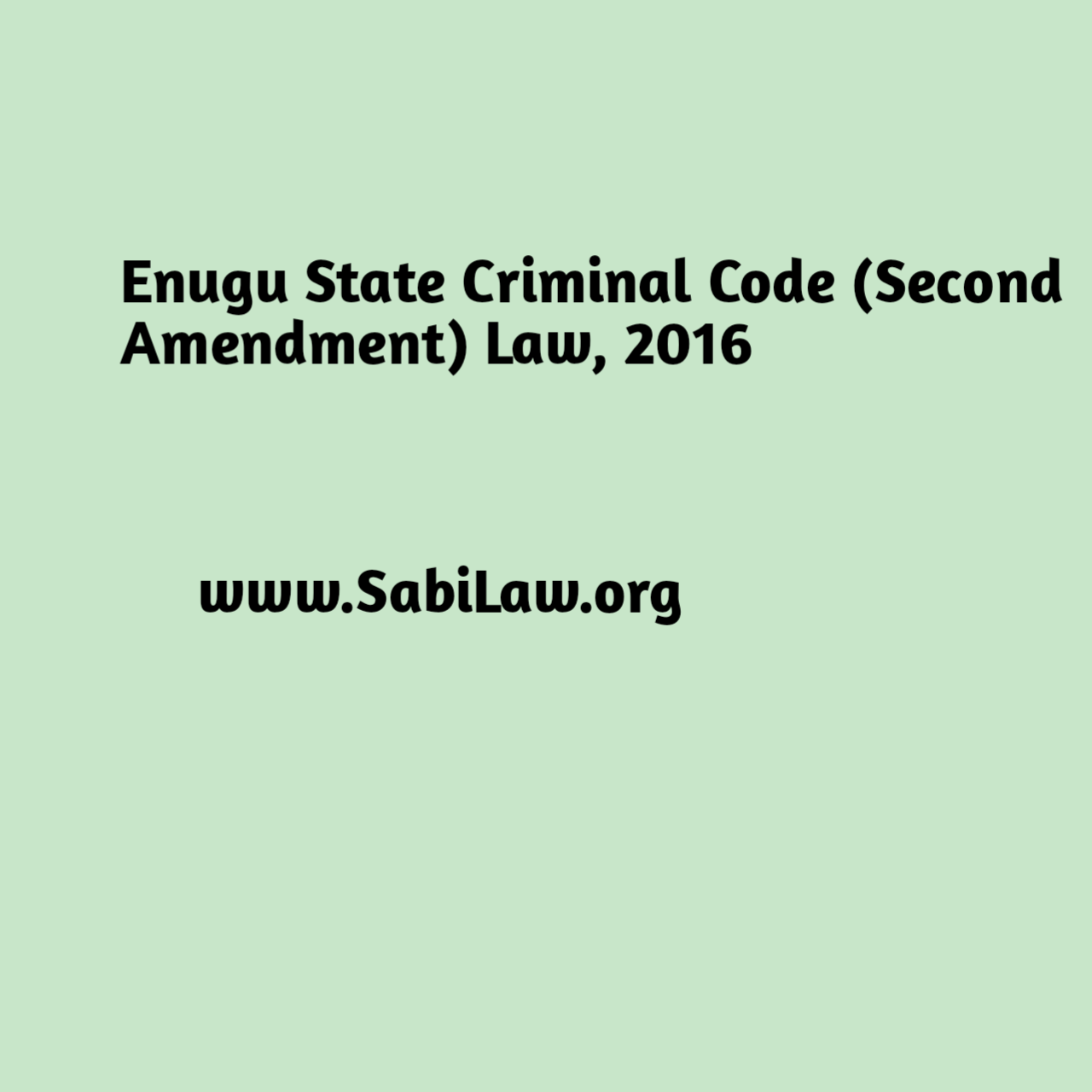

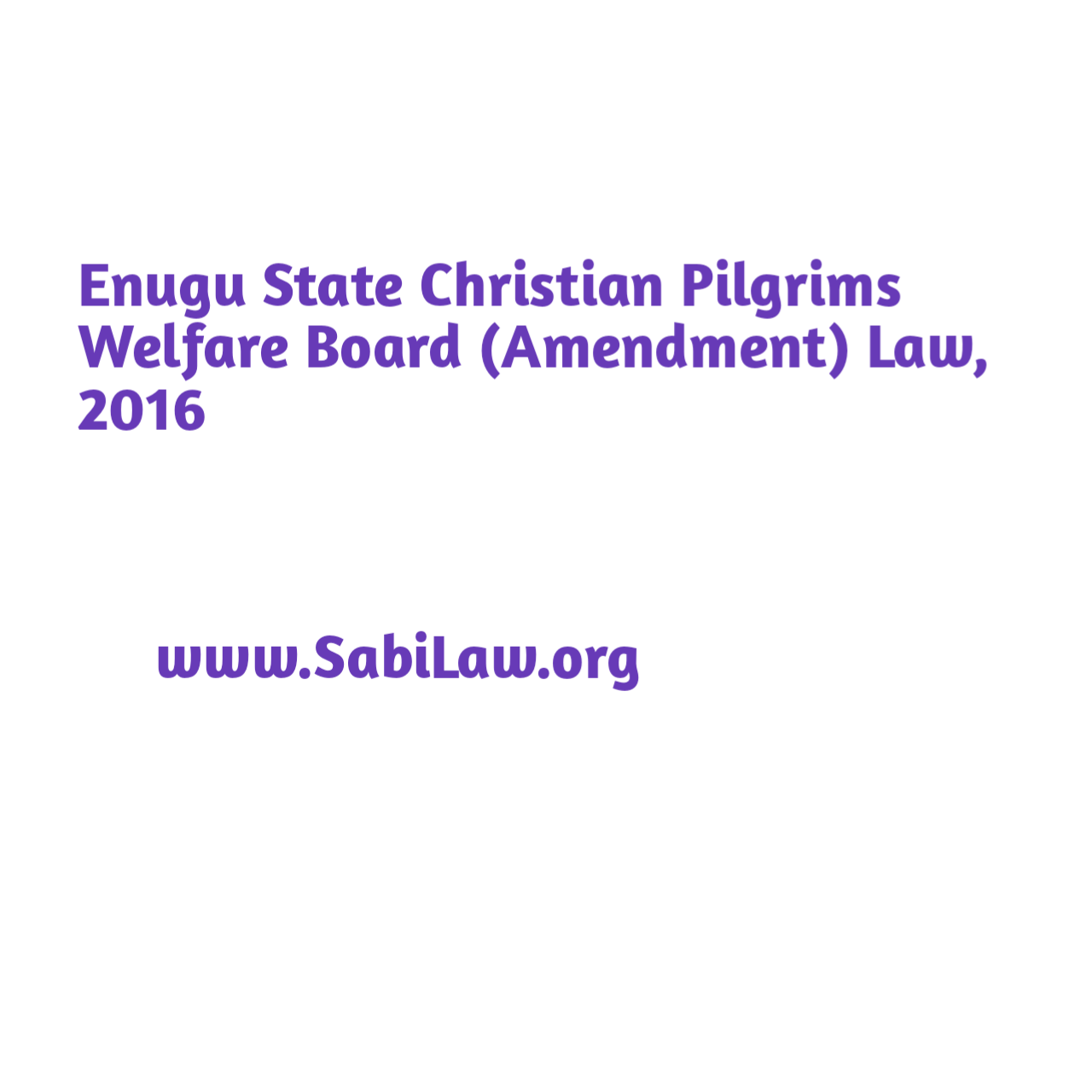

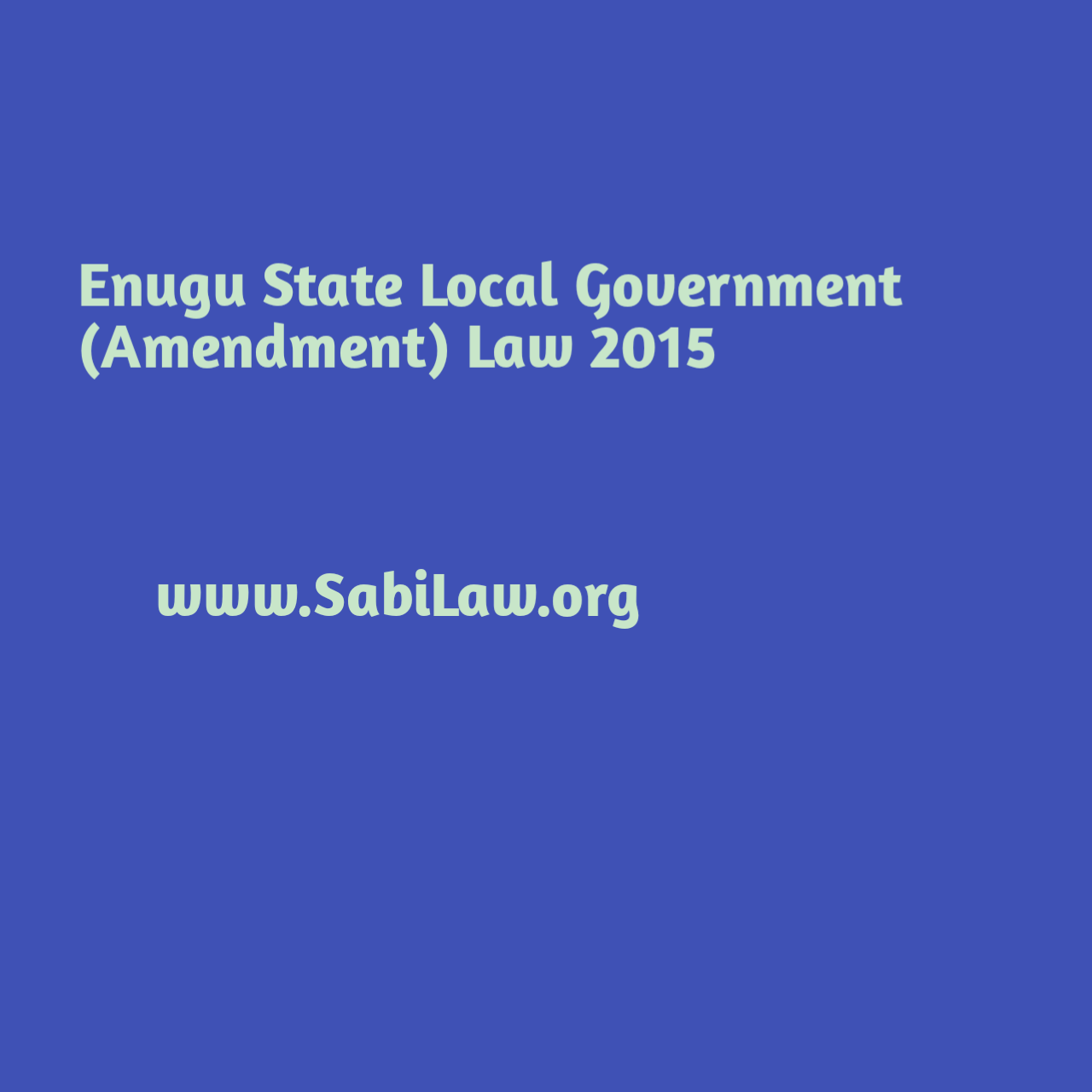
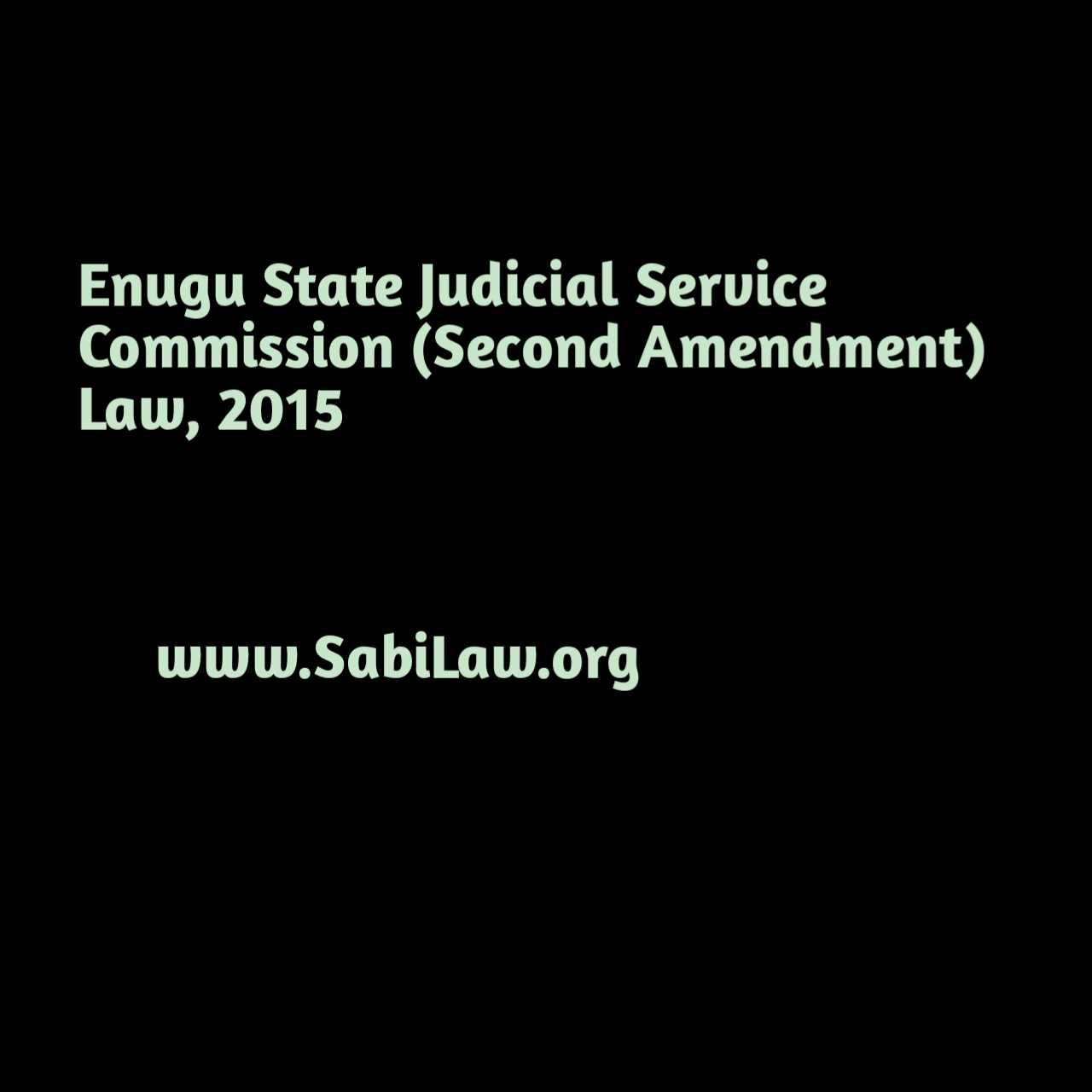
2 Responses